Skid-steer loaders, with their flexibility and efficiency, are versatile tools for landscaping, site clearance, and warehouse handling. However, many
users struggle to choose between tracked and wheeled models. As a professional skid-steer loader manufacturer (products certified by ISO, CE, EPA,
and EURO5), our LD-S Series (wheeled) and LD-T Series (crawler) cover a wide range of applications. By analyzing the key differences between these
two models, we'll help you choose the right equipment for you.
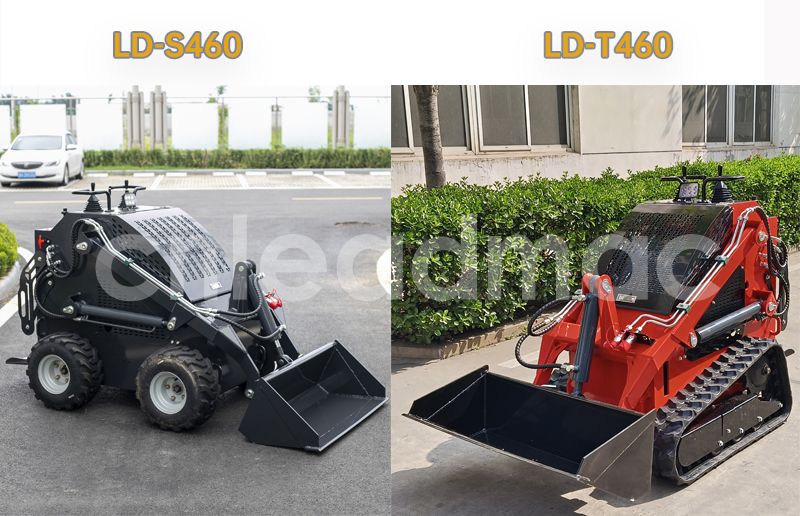
I. Core Differences: Crawler vs. Wheeled: Pros and Cons at a Glance
In terms of terrain, crawler skid-steer loaders (LD-T Series) are more suitable for complex and rugged surfaces such as mud, steep slopes, and gravel, while
wheeled skid-steer loaders (LD-S Series) are more suitable for smooth, hardened surfaces like concrete, asphalt roads, and warehouses. In terms of grip and
stability, crawler models, with their larger track footprint (for example, the LD-T360's track dimensions are 180*72*35), offer superior grip, enabling stable
operation even on slopes steeper than 25°. Wheeled models, equipped with specialized tires (such as the LD-S460's tire dimensions of 23*8.5-12), offer flexible
steering and excellent stability on flat surfaces.
In terms of load capacity and efficiency, crawler skid steer loaders have a rated operating weight between 900 and 1200 kg. For example, the LD-T460 has a
maximum operating weight of 400 kg, providing enhanced stability during heavy-load operations. Wheeled models, with a rated operating weight between
1050 and 1200 kg, such as the LD-S490, have a rated operating weight of 250 kg. While their load capacity is slightly lower, they offer faster speeds on flat
surfaces, improving efficiency in short-distance operations. In terms of maintenance and cost, track wear on crawler models is significantly affected by terrain,
leading to relatively high replacement costs. Wheeled models offer simpler tire maintenance, less wear on smooth surfaces, and lower overall maintenance
costs, making them more suitable for frequent operations on hardened surfaces.
In terms of maneuverability, crawler skid steer loaders have a ground clearance of 110-130mm (e.g., the LD-T360 has a 130mm ground clearance), making
them less likely to impact the chassis on rough terrain. Wheeled models have a ground clearance of 130-180mm (e.g., the LD-S390 has a 180mm ground
clearance), offering superior maneuverability on smooth surfaces and easily navigating minor bumps.
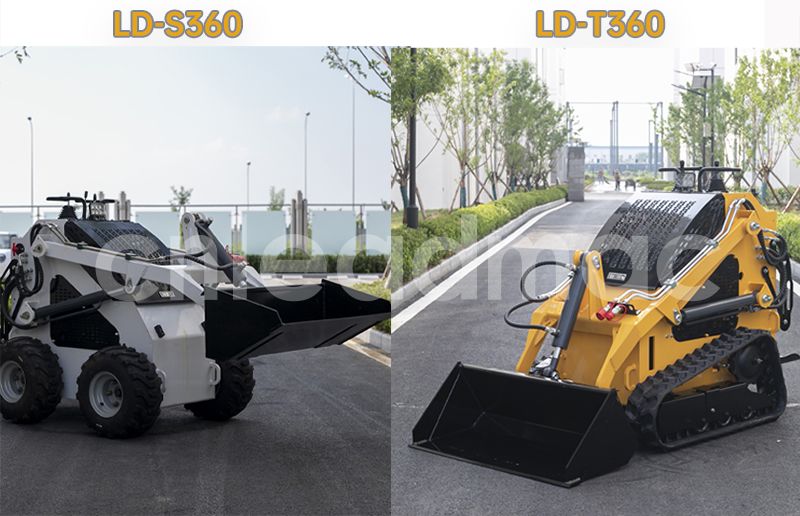
2. Choosing the Right Machine: Choosing the Right Machine Based on the Application Doubles Your Efficiency
1. Choose a Crawler: Complex Terrain First
If your operations are primarily on outdoor construction sites, mines, or gardens with steep slopes, or if you frequently encounter muddy roads in
rainy weather, a crawler skid steer is the preferred choice. Take the SDLD LD-T460, for example. Its tracks offer strong grip and a breakout force of
3.5-4.5 kN, making it highly effective for tasks like gravel removal and material transfer on steep slopes. Its thickened, adjustable dozer blade
allows for flexible adaptation to uneven surfaces, minimizing blind spots.
2. Choose a wheeled model: More suitable for flat surfaces
Wheeled models offer greater flexibility for flat surfaces, such as warehouse cargo handling, factory floor cleaning, and municipal asphalt road
maintenance. The SDLD LD-S460 boasts a small turning radius and a minimalist central control system, making it easy for even novice operators to
quickly master operations. Its 23*8.5-12 tires offer minimal wear on hardened surfaces and a long service life, making them suitable for frequent,
short-distance transfers and effectively reducing equipment wear and tear costs.
3. General Requirements: See Additional Configurations
Regardless of which model you choose, consider the common advantages of SDLD skid-steer loaders: The body is equipped with long-life LED headlights,
offering high brightness and natural lighting, making them ideal for nighttime operations. The fuel lines are made of oil-resistant rubber, resisting aging
and leaks, reducing maintenance hassles. The high-quality hydraulic cylinders offer a simple structure, zero backlash during operation, and smooth,
stable operation, enhancing operational precision. For multi-purpose applications, accessories such as breakers, snow throwers, and scarifiers can
be added, achieving "one machine for multiple uses" and further improving the equipment's cost-effectiveness.
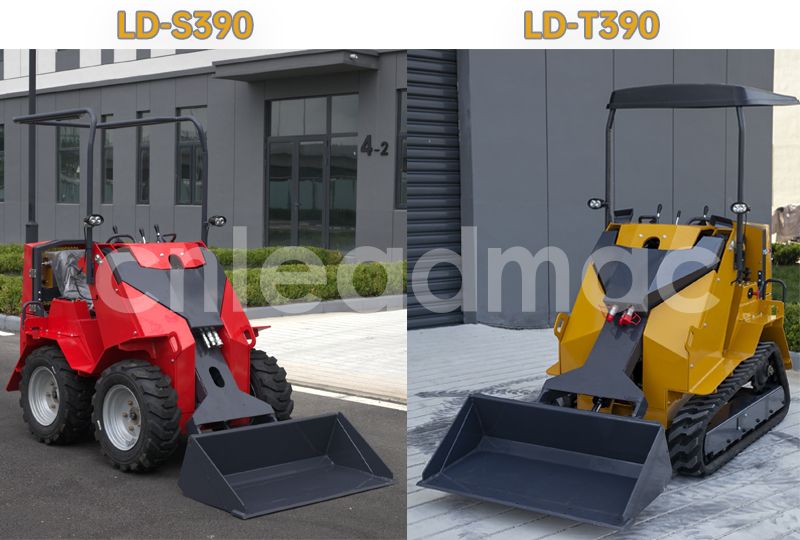
3. Professional Brand Guarantee: Choosing the right model is crucial, as is choosing the right manufacturer.
Our company has an annual production capacity of 5,000 units. We utilize a comprehensive ERP enterprise resource planning system and
professional testing equipment to ensure comprehensive product quality control from production to delivery. All our skid-steer loaders are
internationally certified, ensuring quality assurance. We also support customized attachment combinations and wholesale purchases to
meet the bulk purchasing needs of various companies. Whether it's the complex terrain adaptability of tracked models or the flexibility
of wheeled models for smooth terrain, our company provides precise selection recommendations based on the user's operating area,
terrain conditions, load requirements, and more. This helps users avoid the pitfall of choosing the wrong model, ensuring the equipment is
truly adapted to the application, maximizing its effectiveness and helping businesses improve operational efficiency.
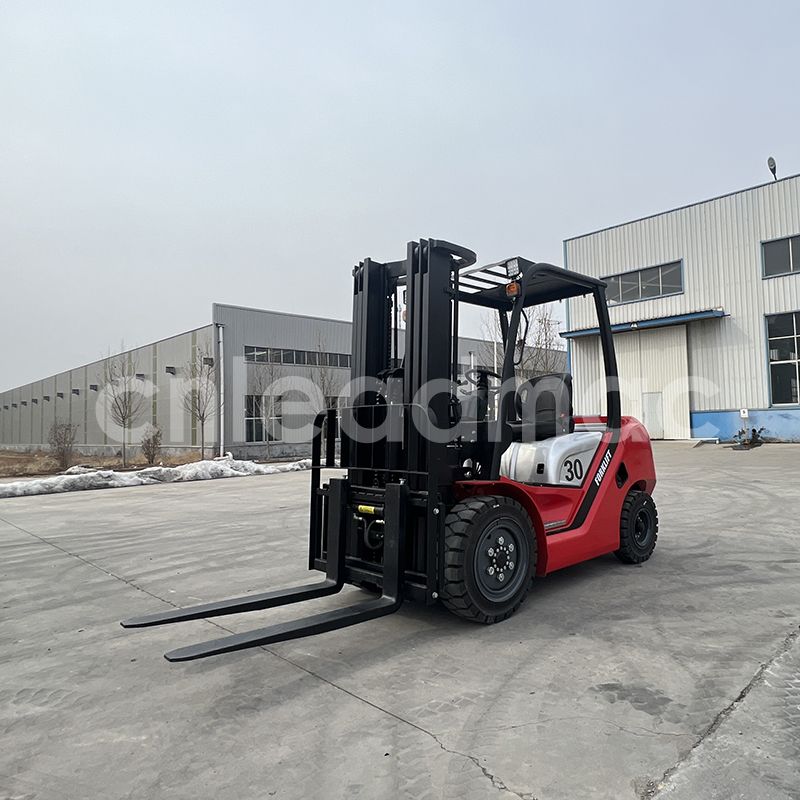 The All-New Ld-D30 Diesel Fork
The All-New Ld-D30 Diesel Fork
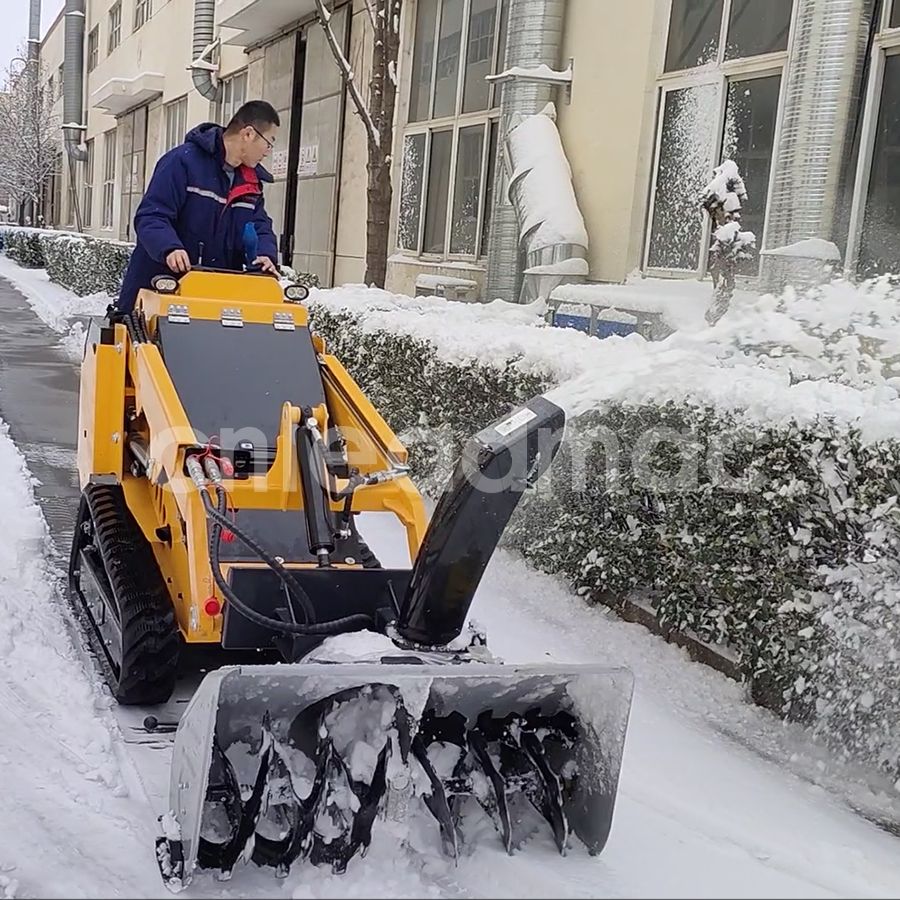 Snow Removal Without Worry – T
Snow Removal Without Worry – T
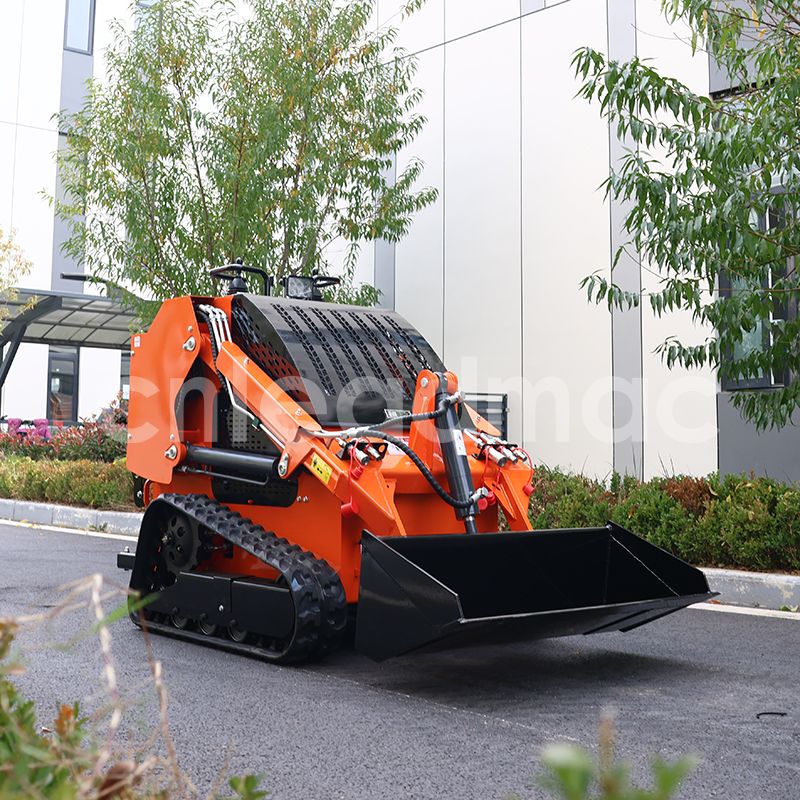 Say Goodbye To Range Anxiety!
Say Goodbye To Range Anxiety!